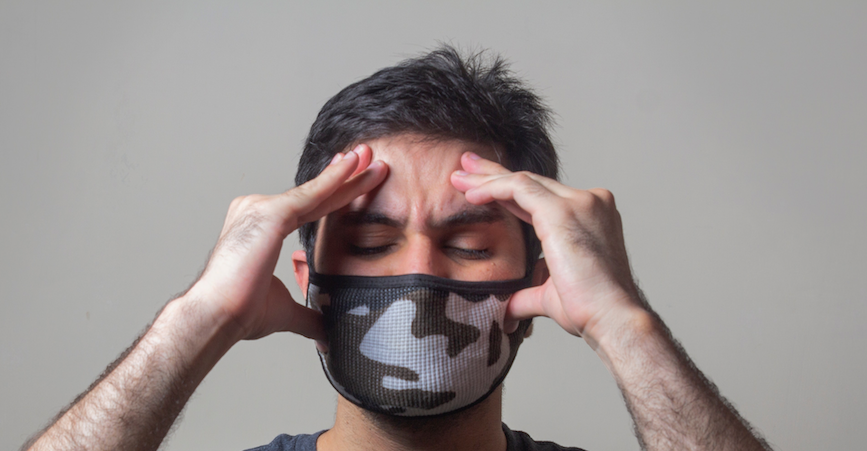Do you often wake up in pain? Does your shoulder feel frozen and stiff? If so, you may be struggling with a frozen shoulder or shoulder bursitis. This condition can make it difficult to sleep as well as perform everyday activities. This blog post will discuss how to sleep with a frozen shoulder and get the relief you need!
Frozen Shoulder Pain at Night
Frozen shoulder is a condition that results in pain and stiffness in the shoulder. The condition is caused by the inflammation of the shoulder joint and surrounding tissues. Frozen shoulder typically affects people between the ages of 40 and 60, and women are more likely to experience it than men.
If you're dealing with frozen shoulder pain, you know it can be tough to get a good night's sleep. The pain can make it hard to find a comfortable position and can wake you up if you move too much. Frozen shoulder pain can feel like anything from a dull ache to a sharp, burning sensation. However, don't worry. There are many remedies available to help ease your pain.
Frozen Shoulder Pain Relief at Night
Frozen shoulder is a common condition that can cause significant pain and stiffness. There are a few things you can do to try to ease frozen shoulder pain at night:
Stretch before bed
Doing gentle stretches before bed can help ease frozen shoulder pain and improve the range of motion. Try doing some arm circles, shoulder rolls, and arm swings. Hold each stretch for 30 seconds.

Using a pillow for support
Try using a pillow to support your arm and place your frozen shoulder in a comfortable position. Place it under your good arm if you're sleeping on your side or between your knees if you're sleeping on your back. This can help take some of the pressure off your shoulder.
Apply heat or ice
Try using a heating pad or ice pack on your shoulder for 20-30 minutes before bed. This can help ease the pain and make it easier to fall asleep. This can help to reduce pain and inflammation.
Wear Comfortable Clothing
Make sure you wear comfortable clothing to bed that won't irritate your frozen shoulder. This includes loose-fitting clothes and avoiding items like belts or jewelry that could put pressure on your shoulder. Investing in comfortable post-shoulder surgery shirts can also be a good idea since they are also equipped with a range of zips to make it easier to change into and out of the clothing without hurting your frozen shoulder. The zips can also simplify accessing your frozen shoulder, especially if you need to ice or apply heat to the shoulder. For stylish and durable shoulder surgery shirts, check our Reboundwear's collection!
Try over-the-counter pain medication.
Ibuprofen or acetaminophen may help to ease frozen shoulder pain. You can take this while getting ready for bed, which will help reduce the pain and make it easier to fall asleep. However, before taking any medication, it is always best to consult a doctor or healthcare professional.
Talk to your doctor
Talk to your doctor if you're still having trouble sleeping with frozen shoulder pain. They may be able to prescribe medication or suggest other treatments that can help ease your pain and improve your quality of sleep.
Why does a frozen shoulder hurt more at night?
There are a few reasons why a frozen shoulder may hurt more at night. First, when you lie down, your shoulder is in a position of complete rest. This can increase stiffness and pain. Second, lying down also decreases blood flow to the shoulder joint. This can lead to more inflammation and pain. Finally, the body releases fewer endorphins when you sleep, which can make pain feel more intense.

How to relieve a stiff shoulder after sleeping?
If you wake up with a stiff shoulder, you can do a few stretches to help relieve the pain. First, try doing some arm circles. Start by holding your arm out to the side and making small circles. Gradually make the circles larger until you feel a stretch in your shoulder. Next, try doing some shoulder rolls. Start by rolling your shoulders forward and then backward. Finally, try doing some arm swings. Start with your arms at your sides and swing them front to back and then side to side. Do each stretch for 30 seconds.
What causes a frozen shoulder?
The most common cause of frozen shoulder is the wearing down of the cartilage in the shoulder joint. This process, called "arthritis," can happen slowly over time or suddenly due to an injury. Regardless of how it happens, arthritis causes the shoulder joint to become inflamed and stiff.
Another common cause of frozen shoulder is a rotator cuff injury. A rotator cuff is a group of muscles and tendons that attach the shoulder blade to the upper arm bone. These muscles and tendons help lift the arm. A rotator cuff injury can occur suddenly, such as from a fall, or it can happen slowly from wear and tear over time.
The injury can make sleeping difficult at night because you may have to sleep in a position that doesn't put pressure on the rotator cuff. This can make finding a comfortable position challenging and lead to more pain. However, you can use home remedies to find a way to ease the pain, such as using a pillow for support, stretching, and taking over-the-counter pain medication.
If you're still having trouble sleeping, talk to your doctor. They may be able to prescribe medication or suggest other treatments that can help ease your pain and improve your quality of sleep.
Conclusion
Sleeping with a frozen shoulder can be difficult, but there are ways to make it more comfortable. We’ve provided tips on sleeping comfortably with a frozen shoulder. If you have any other questions or need help finding relief, please don’t hesitate to reach out to us. We want you to get the rest you need and feel better as soon as possible.






Leave a comment
All comments are moderated before being published.
This site is protected by hCaptcha and the hCaptcha Privacy Policy and Terms of Service apply.